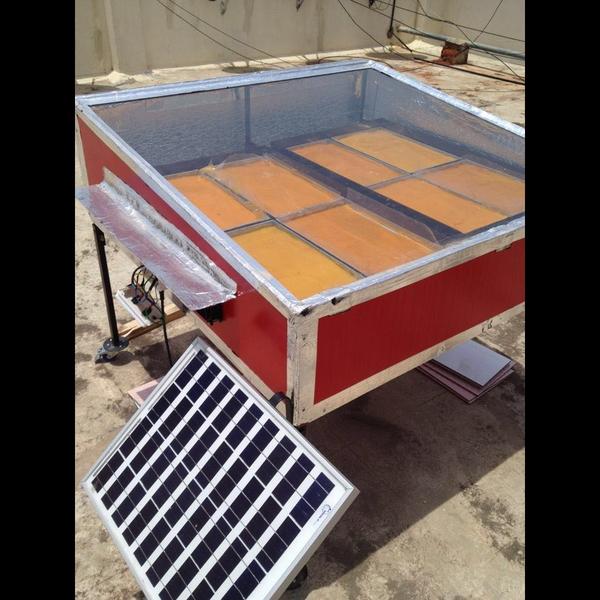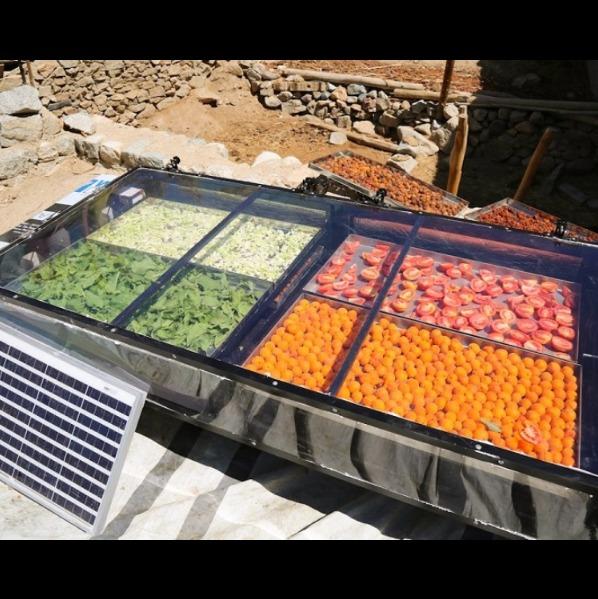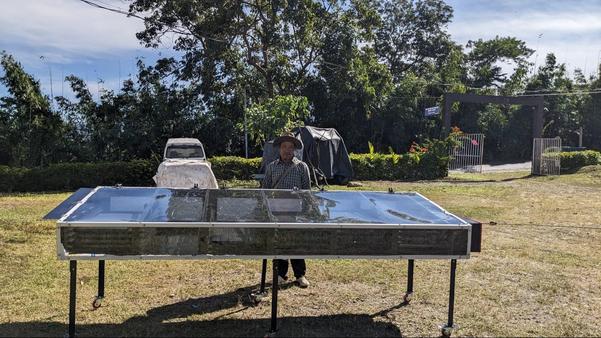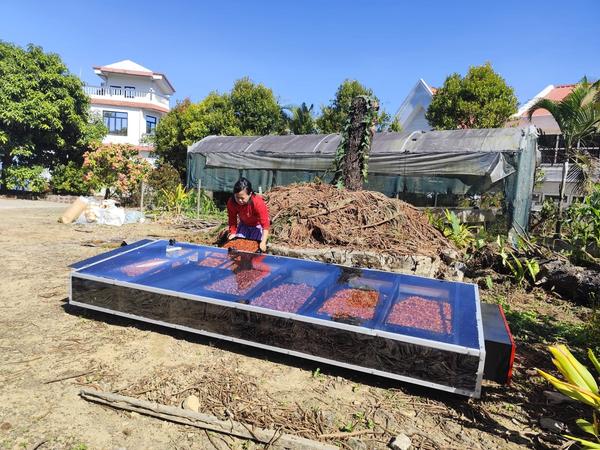
Solar Dryer In Sikkim
Solar dryers are significantly benefiting farmers and women in Sikkim by improving agricultural productivity, enhancing food preservation, and creating new economic opportunities. Here’s how they are making a positive impact:
1. **Improved Post-Harvest Processing**
- **Enhanced Drying Efficiency**: Solar dryers use the power of the sun to dry fruits, vegetables, herbs, and other crops efficiently. In Sikkim, where crops like cardamom, ginger, and temperate fruits (apples, kiwis) are grown, solar dryers offer a more consistent and hygienic alternative to traditional sun-drying methods.
- **Prevention of Spoilage**: Unlike open-air drying, which can be affected by weather conditions like rain or excessive humidity, solar dryers protect crops from contamination by dust, insects, and birds. This improves the quality of the dried produce, making it more marketable.
2. **Boosting Economic Opportunities**
- **Increased Shelf Life and Market Access**: Solar drying extends the shelf life of perishable products, allowing farmers to store and sell their produce at times when prices are higher. This helps farmers maximize profits and reduce losses from post-harvest wastage.
- **Value Addition**: By converting raw agricultural products into value-added dried goods (e.g., dried fruits, spices, herbs), farmers can access higher-value markets, including export markets, improving their income.
3. **Women Empowerment**
- **Reduced Time and Labor**: In Sikkim, where women often play a central role in farming and food processing, solar dryers reduce the time and physical labor required for drying crops. Traditional drying methods often involve long hours of sun exposure and manual labor, but solar dryers automate the process, allowing women to engage in other productive activities, like managing the household or engaging in small businesses.
- **Skill Development**: Many women in rural Sikkim have been trained to operate and maintain solar dryers. This not only empowers them with technical skills but also opens up opportunities for entrepreneurship. They can form cooperatives to collectively process and sell dried products, further boosting their income.
4. **Sustainability and Environmental Benefits**
- **Eco-Friendly Technology**: Solar dryers use renewable energy, which is particularly important in Sikkim, a state that prioritizes environmental sustainability. The use of solar energy reduces the dependency on non-renewable resources like firewood or kerosene, promoting a cleaner and more sustainable way of drying crops.
- **Climate Resilience**: Solar dryers help farmers become more resilient to climate change by offering a reliable and energy-efficient drying method, even during periods of erratic weather patterns.
5. **Government and NGO Support**
- Several initiatives by the Sikkim government and non-governmental organizations (NGOs) have been promoting the use of solar dryers. These programs often include subsidies for purchasing solar dryers, training programs, and community-based efforts to ensure widespread adoption.
6. **Cultural and Social Benefits**
- **Community Empowerment**: Solar dryers are sometimes operated as community projects, where farmers and women come together to process their collective produce. This strengthens social ties and encourages cooperation, often leading to better community cohesion.
- **Health and Hygiene**: The hygienic drying environment reduces the risk of contamination by microorganisms, ensuring that the dried food is safe for consumption. This is particularly important for women, who are primarily responsible for food safety and nutrition at the household level.
Conclusion
Solar dryers in Sikkim have become a powerful tool that addresses multiple challenges faced by farmers and women. They offer a sustainable, efficient, and eco-friendly solution to enhance agricultural productivity, preserve food, and boost incomes, while also fostering women’s empowerment and community development.
For more details kindly contact us
Keywords
sustainable efficient
sikkim government
kerosene promoting
rural sikkim
sun exposure
crops efficiently
boost incomes
ecofriendly solution
powerful tool
food safety
primarily responsible
microorganisms ensuring
encourages cooperation
collective produce
communitybased efforts
ngo support
climate change
nonrenewable resources
collectively process
form cooperatives
technical skills
productive activities
manual labor
central role
postharvest wastage
reduce losses
shelf life
dust insects
weather conditions
hygienic alternative
cardamom ginger
community development
community projects
renewable energy
income 4 sustainability
solar dryer
dried food
solar dryers
process allowing women
dried produce making
sikkim solar dryers
significantly benefiting farmers
sell dried products
physical labor required
economic opportunities heres
solar energy reduces
community cohesion health
maintain solar dryers
solar dryers automate
prioritizes environmental sustainability
valueadded dried goods
details kindly contact
fostering womens empowerment
strengthens social ties
nongovernmental organizations ngos
energyefficient drying method
involve long hours
export markets improving
access highervalue markets





